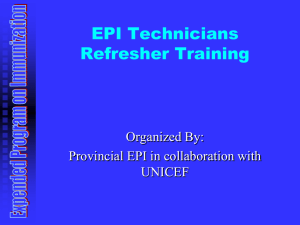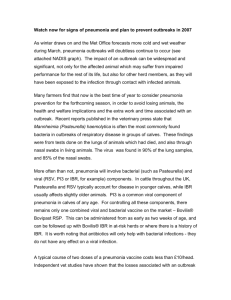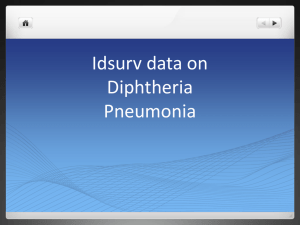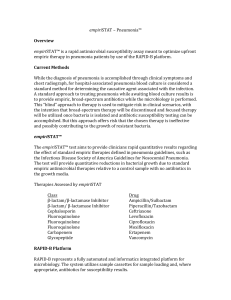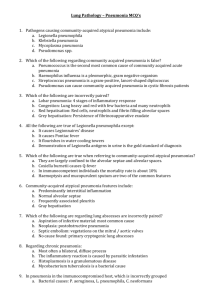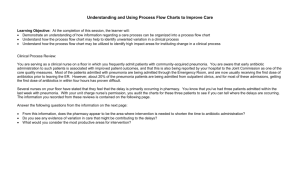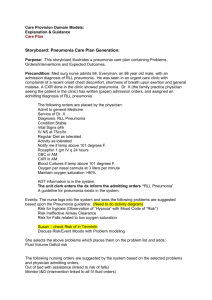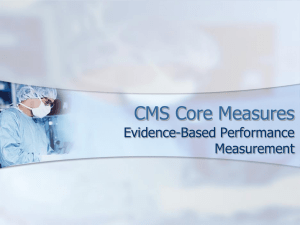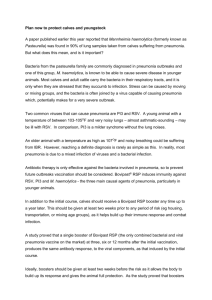Pneumonia - Stratis Health
advertisement
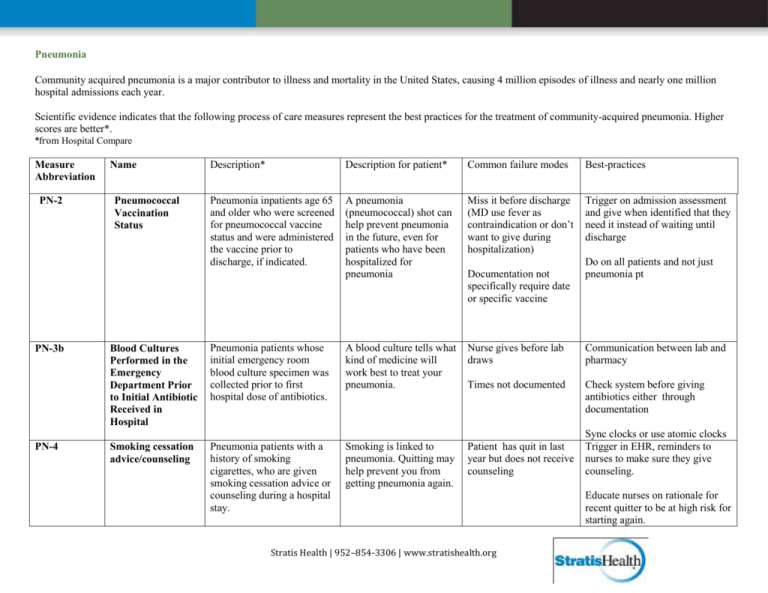
Pneumonia Community acquired pneumonia is a major contributor to illness and mortality in the United States, causing 4 million episodes of illness and nearly one million hospital admissions each year. Scientific evidence indicates that the following process of care measures represent the best practices for the treatment of community-acquired pneumonia. Higher scores are better*. *from Hospital Compare Measure Abbreviation PN-2 PN-3b PN-4 Name Pneumococcal Vaccination Status Blood Cultures Performed in the Emergency Department Prior to Initial Antibiotic Received in Hospital Smoking cessation advice/counseling Description* Description for patient* Common failure modes Best-practices Pneumonia inpatients age 65 and older who were screened for pneumococcal vaccine status and were administered the vaccine prior to discharge, if indicated. A pneumonia (pneumococcal) shot can help prevent pneumonia in the future, even for patients who have been hospitalized for pneumonia Miss it before discharge (MD use fever as contraindication or don’t want to give during hospitalization) Trigger on admission assessment and give when identified that they need it instead of waiting until discharge A blood culture tells what kind of medicine will work best to treat your pneumonia. Nurse gives before lab draws Communication between lab and pharmacy Times not documented Check system before giving antibiotics either through documentation Pneumonia patients whose initial emergency room blood culture specimen was collected prior to first hospital dose of antibiotics. Pneumonia patients with a history of smoking cigarettes, who are given smoking cessation advice or counseling during a hospital stay. Smoking is linked to pneumonia. Quitting may help prevent you from getting pneumonia again. Documentation not specifically require date or specific vaccine Patient has quit in last year but does not receive counseling Stratis Health | 952–854-3306 | www.stratishealth.org Do on all patients and not just pneumonia pt Sync clocks or use atomic clocks Trigger in EHR, reminders to nurses to make sure they give counseling. Educate nurses on rationale for recent quitter to be at high risk for starting again. Measure Abbreviation Name Description* Description for patient* Common failure modes Best-practices Documentation of smoking status is not detailed enough i.e. if pt quit, date or #months/yrs not documented Preprinted documentation and clear expectations/accountability Information documented is in conflict – what MD documents and Nurse documents is different PN-5c Initial Antibiotic Timing PN-6 Appropriate Initial Antibiotic Selection PN-7 Influenza Vaccination Status Pneumonia inpatients that receive within 6 hours after arrival at the hospital. Evidence shows better outcomes for administration times less than four hours Immunocompetent patients with pneumonia who receive an initial antibiotic regimen that is consistent with current guidelines. Pneumonia patients age 50 years and older, hospitalized during October, November, December, January, or February who were screened for influenza vaccine status and were vaccinated prior to discharge, if indicated. Timely use of antibiotics Miss 6 hrs because of can improve the treatment delay in ED of pneumonia caused by bacteria. Antibiotics are medicines that treat infection, and each one is different. Hospitals should choose the antibiotics that best treat the infection type for each pneumonia patient. An influenza shot can help prevent influenza in the future, even for patients who have been hospitalized for pneumonia. MDs not up-to-date on recommended meds Make note that there is conflicting info and clarifying in record Understanding which conflicting information would be counted and making sure that actions taken are appropriate. Standing orders Having system in place for educating MD with every change in specs Develop cheat sheets with antibiotic list for MD Miss it before discharge (MD use fever as contraindication or don’t want to give during hospitalization) Documentation not specifically require date or specific vaccine Copyright © 2011 Stratis Health This project was funded by a grant from PMI Ohio Flex Project. Stratis Health | 952–854-3306 | www.stratishealth.org Trigger on admission assessment and give when identified that they need it instead of waiting until discharge Assess and give immunization for all patients and not just pneumonia pt
